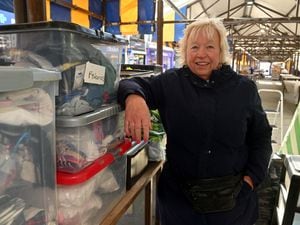Councils face big rise in housing payments over coronavirus crisis
Councils are bracing for a steep rise in housing payments for those struggling to make ends meet due to the coronavirus pandemic.

The bill for authorities like Sandwell was already over £1.5 million a year and now looks set to rise further.
It comes as experts warned more action will be needed to help struggling tenants as hundreds of thousands of jobs have been lost across the country since the start of the coronavirus pandemic.
Department for Work and Pensions figures show Sandwell Borough Council paid £1,560,000 in Discretionary Housing Payments (DHP) to claimants in the year to March.
Of that, £786,500 went to helping people who were in difficulties because of reforms in the welfare system.
More Covid-19 coverage:
The Government sets DHP funding for local authorities each year, with councils having to dip into their own funds if demand exceeds their allocation.
This year the authority will be handed £1.28 million to further help people recover after the coronavirus pandemic.
Walsall Council paid £860,800 in housing payments during the same time period – with £380,100 helping people who were in difficulties. This year, to help people recover from lockdown, the authority will receive £989,000.
And Dudley Council paid £853,400 to claimants – with £761,300 going to help those struggling. A total of £863,000 will be received this year.
Wolverhampton Council paid £837,100 in Discretionary Housing Payments, but has no breakdown on how much of this went to those who were in difficulties. It will receive £978,000 to help people out of difficulties caused by Covid-19.
Arrears
Neither did Stafford Borough Council, which paid £136,900 in housing payments. This year they will receive £172,000.
Councils across England and Wales paid out £132 million in 2019-20 – but 24 authorities did not supply figures, meaning the total could be higher.
More than 40 per cent of councils had to spend more than the amount they got from the Government.
Karl Handscomb, senior economist at the Resolution Foundation think tank, said: “The current crisis has pushed three-quarters of a million employees out of work, increased the number of households impacted by the benefit cap, and seen more private renters falling into arrears.
"All of these factors will have in turn increased demand for Discretionary Housing Payments.
“The increased demand is likely to remain elevated while the crisis is still with us, highlighting both the need for the welcome additional housing support announced in March, and for more action to support renters struggling to pay for their homes.”
A DWP spokesman said: “We have provided over £1 billion in Discretionary Housing Payment funding since 2011, enabling local authorities to support households that need additional help.
“Funding is allocated in consultation with local authority bodies based on local pressures and payments are intended as transitional while longer term solutions are found.
“In addition, this year we have increased Local Housing Allowance rates, including the Shared Accommodation element, benefiting over 1 million households by £600 a year on average.”





